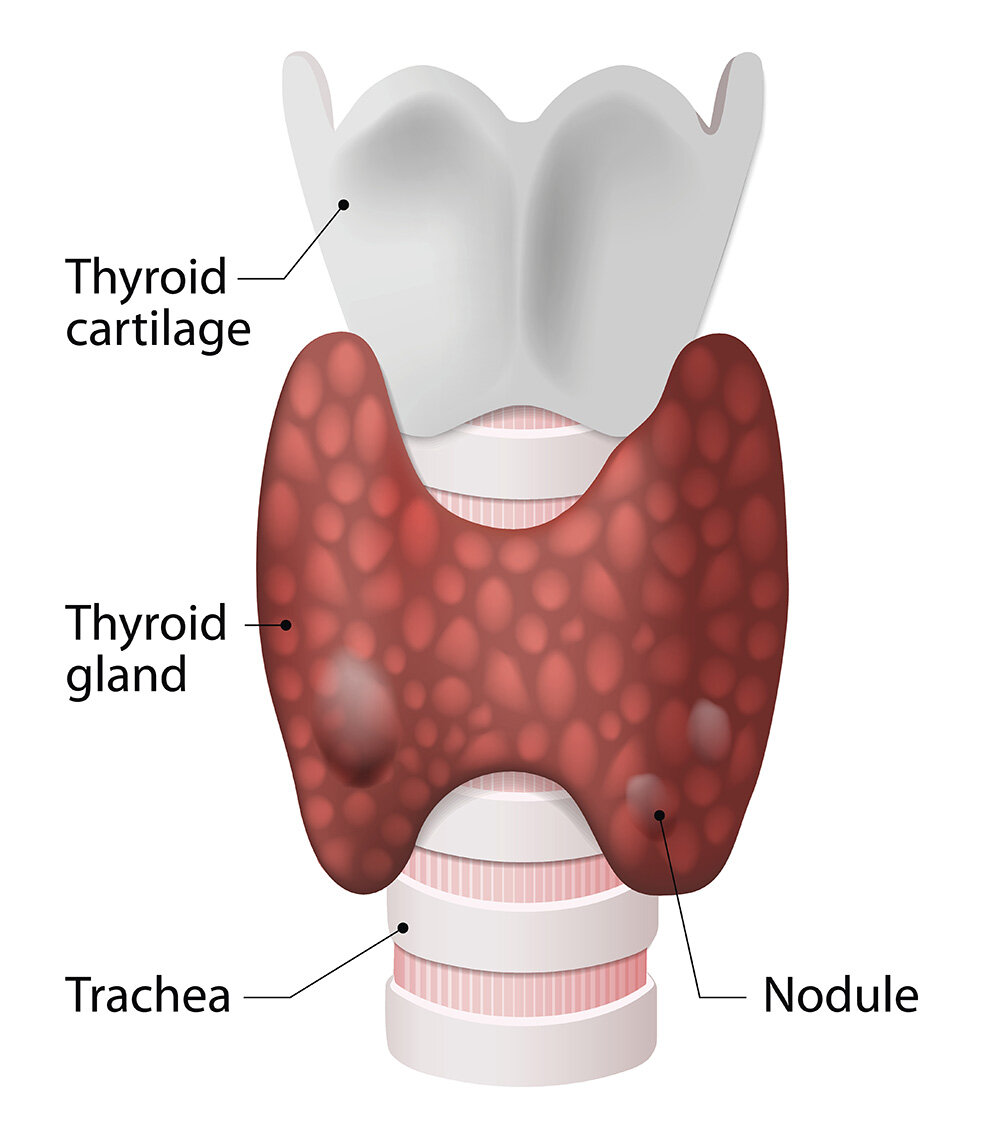Thyroid Nodules & Thyroid Surgery
Thyroid nodules are common. Less than 1 in 10 will be a thyroid cancer. However, if you have a lump or nodule in your neck, we need to rule out the possibility of cancer by investigating and treating it as early as possible.
Speak to your GP if you notice any unusual physical symptoms and they can refer you to see one of the surgeons at Sunnybank Surgical to discuss surgery for thyroid nodules.
What are thyroid nodules?
A thyroid nodule is an abnormal growth of thyroid cells. These form a lump or nodule in the butterfly-shaped thyroid gland in the lower front of the neck. While most thyroid nodules (over 90%) are benign, a small proportion are cancerous. All thyroid nodules should be investigated to identify problems early.
How will I know if I have thyroid nodules?
Thyroid nodules are extremely common. By age 60 about 50% of people will have them. Some thyroid conditions such as Hashimoto's disease will also increase your risk of developing thyroid nodules. However, most thyroid nodules don’t cause symptoms. They are often discovered while you are having a physical exam or imaging (CT scan or ultrasound) for something else. If present, physical symptoms may include:
a lump in your neck
difficulty with breathing or swallowing if the nodule is large enough to compress the windpipe or oesophagus
a hoarse voice if the nodule invades the nerve that controls the vocal cords
pain in the neck, jaw or ear (although this is less common)
Should I have surgery for thyroid nodules?
Tests to diagnose thyroid nodules include physical exam, thyroid function blood tests, ultrasound scan, fine-needle aspiration biopsy or thyroid scan.
Depending on the results of these tests, your GP may refer you to us for an opinion. The results of the fine-needle aspiration biopsy will determine whether you need to have all or part of your thyroid removed as part of treatment for thyroid conditions. These procedures are known as a partial thyroidectomy, hemithyroidectomy or a total thyroidectomy.
In a conventional thyroidectomy, a small incision is made in the centre of your neck to directly access your thyroid gland. The extent of surgery (partial or total removal) will depend on the size of the tumour and if the tumour is confined to the thyroid.
The length of the incision made in the neck is performed to ensure adequate exposure to the thyroid gland and surrounding areas. This allows your surgeon to clearly see and access the area to avoid injury to the recurrent laryngeal nerve that supplies your vocal cords. This is a serious complication from thyroid surgery.
What is the recovery like after thyroid surgery?
After your thyroid surgery, you’ll need to rest while your wound heals but you can resume normal activity soon after surgery. You may need to take medications after your surgery, especially if you had your whole thyroid gland removed. Generally, you’ll start taking thyroid hormone medication the day after surgery.
If you need surgery to remove thyroid nodules or investigate thyroid symptoms, ask your GP for a referral to us at Sunnybank Surgical. Our surgeons see private patients in hospitals across Brisbane, including Sunnybank Private Hospital, Mater Private Hospital Redlands and Mater Private Hospital South Brisbane and will be happy to discuss details of the surgery at your consultation.

